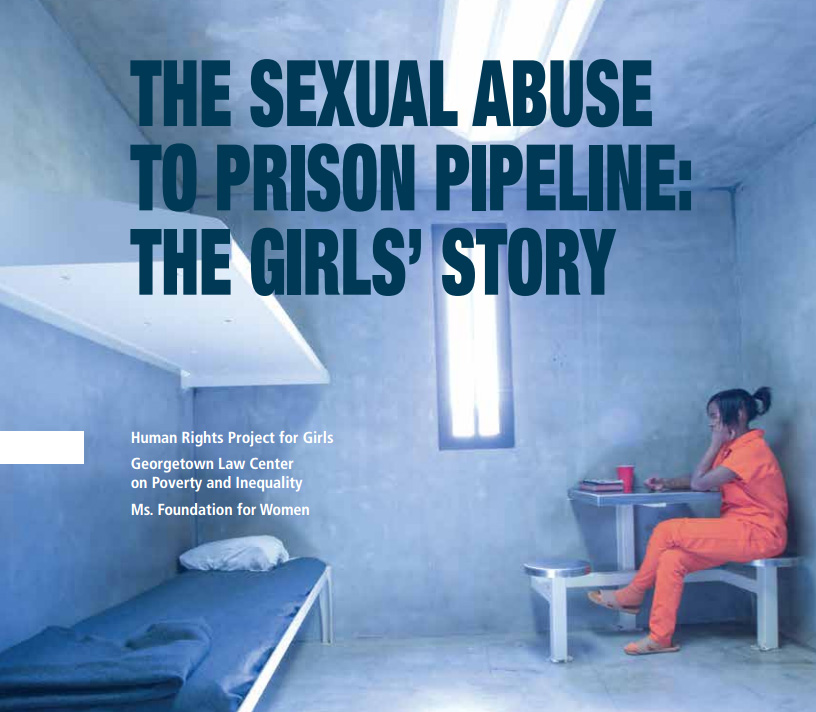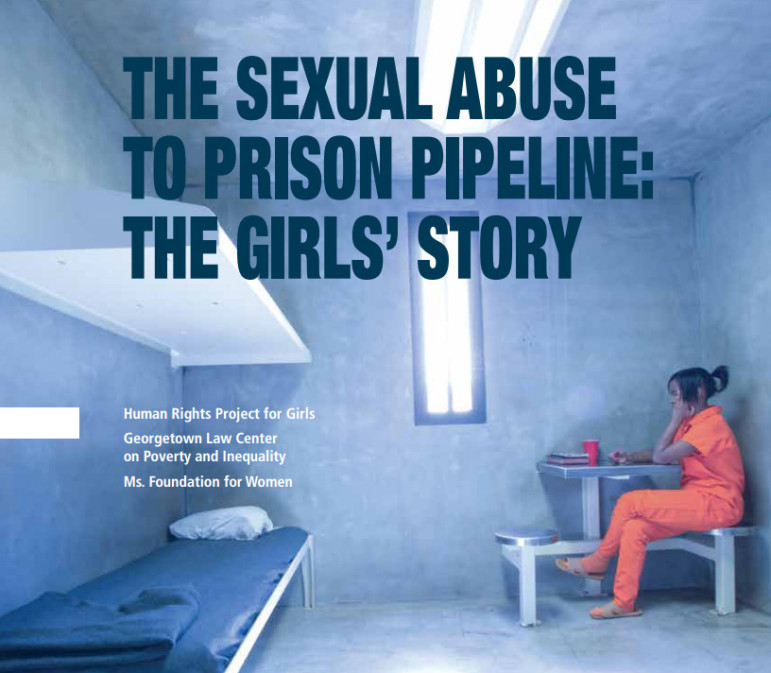The numbers are huge: An Oregon study found that 93 percent of girls in the state’s juvenile justice system had been sexually or physically abused at some time. South Carolina research found that 81 percent of girls in its system had experienced sexual abuse.
Some are victims of sex trafficking. Some who have been abused run away from home and are truant. Some have been abused in the foster care system.
“It’s far more than the vast majority of people are aware of,” said Peter Edelman, faculty director of the Georgetown Law Center on Poverty and Inequality.
The center, along with the Ms. Foundation and the Human Rights Project for Girls, released a new report Thursday: “The Sexual Abuse to Prison Pipeline: The Girls’ Story.”
It pulls together the story of traumatized girls — and a story of punishment instead of assistance.
“Girls, and disproportionately black and brown girls, are, incredibly, being locked up when they’ve run away from an abusive parent or when they have been trafficked for sex as children,” said co-author Malika Saada Saar, executive director of the Human Rights Project for Girls.
[Related: When We Fail To Ask Why: Sexually Abused Girls Funneled into Juvenile Justice System]
“But their stories of unjust arrest and incarceration have been marginalized,” she said.
Once girls are arrested, they enter a system that is often poorly equipped to identify their needs and “treat the violence and trauma that lie at the root of victimized girls’ arrests,” said the report written by Saada Saar, Rebecca Epstein, Lindsay Rosenthal and Yasmin Vafa.
“Girls who have been trafficked get arrested rather than the pimps … They’re treated as criminals rather than victims,” Edelman said.
When girls run away or are truant, they are treated as status offenders.
 “What happens very often is that she runs away [again] and violates her probation as a status offender … Now she’s transformed into a juvenile delinquent — and that needs to be changed,” Edelman said.
“What happens very often is that she runs away [again] and violates her probation as a status offender … Now she’s transformed into a juvenile delinquent — and that needs to be changed,” Edelman said.
The punitive environment of juvenile detention can retrigger trauma, the report says.
“There needs to be significant mental health services in the juvenile corrections system but there just isn’t,” Edelman said.
The sex-abuse-to-prison pipeline disproportionately affects girls of color, the report said.
African-American girls make up 14 percent of the general population, but 33 percent of the juvenile justice population, it said.
Efforts to reform the juvenile justice system are not adequately taking note of girls’ experience and the distinct pipeline that funnels them into the system, the report says.
“When we say ‘black lives matter,’ that means girls too,” Saada Saar said. The debate over criminalizing boys of color must also address the criminalization of girls.
The report calls for a number of actions:
- Increase mental health and trauma services for girls; the report details how that can be done through Medicaid.
- Improve identification of victims of abuse.
- End arrests of girls under 18 on prostitution charges.
- Close the loophole in the law, the Valid Court Order Loophole, that allows girls to be locked up for status offenses, such as truancy or running away.
- Provide law enforcement training on gender bias.
- Create supportive and safe group homes for girls.


Pingback: Porn Exploiting Women of Color Arouses Racists
Pingback: Porn Exploiting Women of Color Arouses Racists MuslimGirl.net
Pingback: Porn Exploiting Women of Color Arouses Racists
At last, this secret is out. Thank you for writing the powerful article.
Sexually abused girls have few places to put their agony.
Some conform and live lives of quiet desperation, often with the help of addictive prescription drugs and alcohol.
Some rebel and live lives of engagement with law enforcement and incarceration, often with the help of street drugs and sex addiction.
All of us writhe with pain until the day we find an ethical trauma therapist who helps us turn around and face the horror of the sexual abuse that happened decades before.
Pingback: The Sexual Abuse to Prison Pipeline: New Report Calls for Better Treatment for Girls | Reclaiming Futures